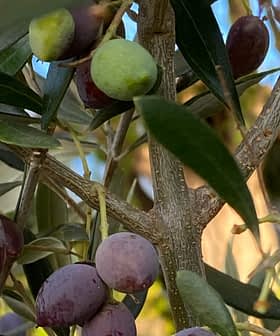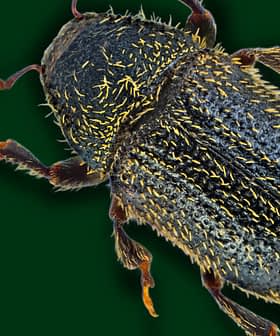Mediterranean Diet Adherence Linked to Lower Risk of Atrial Fibrillation

A recent study explored the impact of dietary interventions on atrial fibrillation, finding that the Mediterranean diet is a robust preventative strategy against the condition due to its antioxidant and anti-inflammatory effects. Despite limited research on the specific mechanisms involved, the study suggests that dietary interventions, particularly the Mediterranean diet, should be considered holistically for disease prevention based on their proven benefits for cardiovascular health and other conditions.
A recent study published in the journal Frontiers in Cardiovascular Medicine has examined the current evidence regarding the impact of dietary interventions, individual nutrients and other dietary components on the condition.
The most common cardiac arrhythmia, atrial fibrillation, is characterized by rapid and irregular beating of the heart’s atrial chambers. The condition can contribute to or be a precursor of a wide range of complications, from chest pain and fainting to heart failure and stroke.
Despite advances in medical procedures and pharmaceutical treatments, the incidence of atrial fibrillation has been increasing worldwide, particularly in the so-called developed world.
See Also:Health NewsFor example, a major cohort study estimated a three percent increase in the United States annually from 2006 to 2018. This has led to a resurgence in interest in lifestyle management, of which diet is a significant aspect.
The researchers from the cardiology division of Baylor Scott & White Health Hospital, Texas, used a narrative synthesis approach to explore the impact of dietary interventions on atrial fibrillation and to assess the role that individual components of those interventions play.
The study found that the two dietary patterns most commonly associated with reduced incidences and improved outcomes were the Mediterraneanand DASH diets.
Although the latter was linked to improved cardiovascular outcomes and decreased mortality, the researchers found that once other lifestyle factors were considered, there was no demonstrable effect on the specific incidence, recurrence or progression of atrial fibrillation.
On the other hand, the Mediterranean diet served as “a robust preventative strategy against the development of atrial fibrillation.”
In exploring the potential mechanisms behind this effect, the researchers posited several possible factors.
The first is the Mediterranean diet’s high percentage of fruits, vegetables and extra virgin olive oil. All three food groups provide antioxidants and polyphenols, which have proven anti-inflammatory and cardioprotective effects.
Oleuropein, for example, has demonstrated a capacity to significantly reduce blood pressure, aligning with the traditional use of olive leaf in treating hypertension.
Studies discussed in the paper also provide evidence for the anti-thrombotic and anti-arrhythmic properties of oleocanthal and hydroxytyrosol, compounds found almost exclusively in extra virgin olive oil.
These compounds have been shown to improve endothelial function and reduce platelet aggregation, thereby lowering the risk of events such as stroke in patients with atrial fibrillation.
The importance of olive-based compounds was further supported by a secondary analysis in 2014 of the PREDIMED trial, which revealed significant atrial fibrillation protection from a Mediterranean diet supplemented with extra virgin olive oil.
The researchers cited that analysis, which showed a 38 percent reduction in relative atrial fibrillation risk compared to other diets.
While the examined evidence strongly supported the role of antioxidants and polyphenols, particularly regarding direct links to reduced atrial fibrillation incidence, the researchers stress that the mechanisms in question remain relatively unexplored.
They conclude, therefore, that while each component warrants extensive further research, dietary interventions such as the Mediterranean diet should be considered holistically in the context of disease prevention.
This conclusion is based on the growing evidence showing that the Mediterranean diet is linked to significantly reducing cardiovascular events and diabetes mellitus, improved blood pressure, insulin resistance, lipid profiles and triglycerides, and significantly lower obesity rates.









